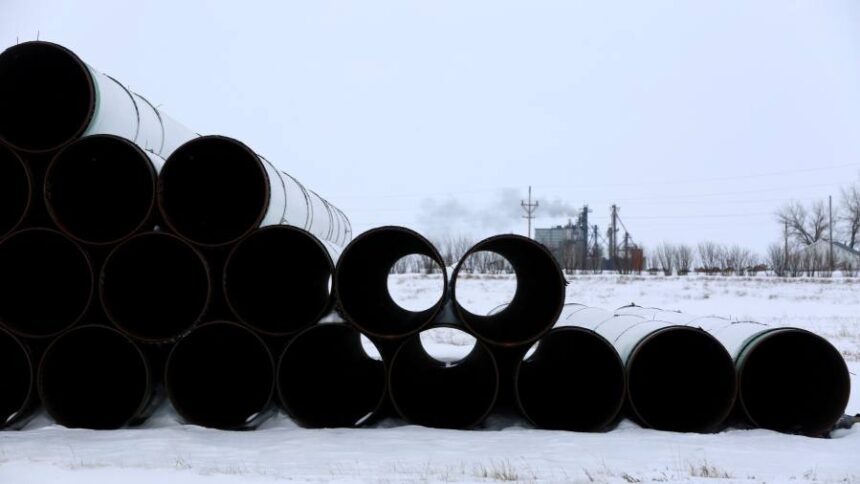Receive free Oil & Gas industry updates
We’ll send you a myFT Daily Digest email rounding up the latest Oil & Gas industry news every morning.
The Canadian energy company that tried and failed to build the controversial Keystone XL pipeline is spinning off its oil transportation business to focus on shipping natural gas.
The decision by Calgary-based TC Energy, announced on Thursday, comes a little more than two years after it was forced to abandon plans to build the $8bn Keystone XL from Canada into the US in the wake of President Joe Biden’s decision to pull a necessary permit.
The company said the planned transaction, which followed a two-year strategic review, would leave a gas-focused business “uniquely positioned to meet growing industry and consumer demand for reliable, lower-carbon energy”.
“We have determined that as two separate companies we can better execute on these distinct opportunity sets to unlock shareholder value,” said François Poirier, TC Energy chief executive.
The company, formerly named TransCanada, shot to prominence in the US and Canada over the past decade as the proposed Keystone XL project — which would have carried bitumen from the northern Alberta oil sands to refineries on the US Gulf coast — became the focal point of a political stand-off over fossil fuels.
Keystone XL was blocked in 2015 by then-president Barack Obama, who said it would undermine US attempts to address climate change, before Donald Trump signed an order to push it forward during his first week in office. Biden’s decision to revoke the permit fulfilled a pledge made on the campaign trail.
After the spin-off, TC Energy will be left to operate one of North America’s largest natural gas infrastructure networks, spanning roughly 94,000 kilometres from western Canada to the US north-east and Gulf coast. Its shares rose 4 per cent in after market trading on Thursday.
The lines to stay with TC Energy deliver about 30 per cent of the gas that is eventually exported from US terminals as liquefied natural gas. TC Energy will also supply Canada’s first LNG terminal, which is set to be completed in 2025, and retain its power generation business.
Pipeline construction in the US has faced strong environmental opposition in recent years as activists seek to block the buildout of infrastructure that locks in reliance on fossil fuels.
TC Energy’s spin-off announcement came the same day that another controversial US infrastructure project, the Mountain Valley natural gas pipeline between Virginia and West Virginia, received a green light from the US Supreme Court, capping years of wrangling over its future as permits were held up in court.
The new oil-focused company to be spun out of TC Energy, which will also be headquartered in Calgary, will operate 4,900km of crude pipeline infrastructure across the US and Canada including the Keystone system, which is separate from the never-built Keystone XL.
TC Energy shareholders will keep their current stake in the existing company and receive a pro-rata allocation of shares in the new entity. The company expects the transaction — which is subject to shareholder approval at next year’s annual meeting — to be completed by the end of 2024.








